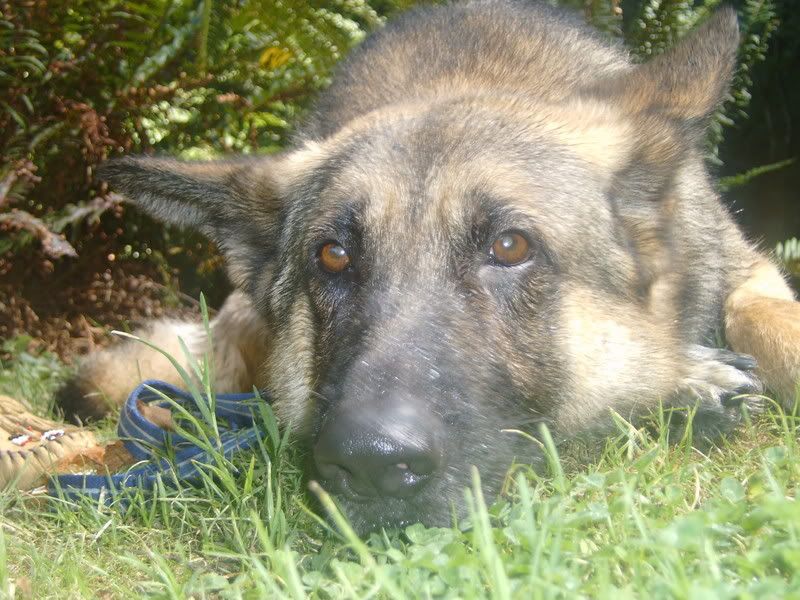Post by Admin on Feb 5, 2008 15:53:18 GMT -5
Can't say that I agree with this one. Then what do they do? Eat them?
Hands Off: New Research on Impact of Human Intervention on Foal Behavior
by: Christa Lesté-Lasserre
February 02 2008, Article # 11259
Human interaction with foals at a critical early developmental age appears to be a stressor, whereas positive human interaction with the dam creates a strong model for the observing foal, according to a series of ongoing research projects at the University of Rennes in northwestern France.
The team's new findings are raising questions about the 15-year-old desensitization technique of imprinting and the common practice of guided suckling, according to Séverine Henry, PhD, professor of animal behavior at the university and co-author of the studies. Imprinting involves human handling of newborn foals in the first hour after birth. In guided suckling, foals are hand-led to their dam's teats within that same hour.
Since 2004, the team of behavioral biologists has been leading comparative studies that focus on the short- and long-term consequences of various human intervention practices in the immediate postnatal period on foal behavior.
"Our most recent study has focused entirely on imprinting techniques, and what we found was that it really wasn't very effective," Henry said.
The results, parts of which were published in Developmental Psychobiology and the Journal of Comparative Psychology, reveal that foals handled by humans during the first hours following birth remained closer to their dams and appeared to be more cautious about approaching humans at several weeks and months of age than foals in a control group that had not been handled.
Human-handled foals were also less social with other foals and less likely to explore their surroundings or separate from their mothers, even at six months of age, Henry said.
By contrast, foals that had not been handled directly, but had witnessed gentle human handling of their dams, were more likely to trust humans, the studies showed.
"What we have discovered is that everything that the foals experience very, very young is something that is then fixed into their memory over the long term," Henry said. "It's evident that we're dealing with a period which is very important for their (behavioral) development."
Henry explained that because horses show affection differently from humans and other domestic animals, using less physical interaction, the early human contact is unnatural and could be perceived as negative.
"It seems that the best way to establish confidence with a new foal is through good contact with its mother," said Henry. "Clearly, to create a positive horse-human relationship, it's not a good idea to intervene in the natural progression of postnatal events, nor in the early mare/foal relationship."
The team plans to continue following the 16 study and control foals to further investigate the effects of early human handling over the long term.
Hands Off: New Research on Impact of Human Intervention on Foal Behavior
by: Christa Lesté-Lasserre
February 02 2008, Article # 11259
Human interaction with foals at a critical early developmental age appears to be a stressor, whereas positive human interaction with the dam creates a strong model for the observing foal, according to a series of ongoing research projects at the University of Rennes in northwestern France.
The team's new findings are raising questions about the 15-year-old desensitization technique of imprinting and the common practice of guided suckling, according to Séverine Henry, PhD, professor of animal behavior at the university and co-author of the studies. Imprinting involves human handling of newborn foals in the first hour after birth. In guided suckling, foals are hand-led to their dam's teats within that same hour.
Since 2004, the team of behavioral biologists has been leading comparative studies that focus on the short- and long-term consequences of various human intervention practices in the immediate postnatal period on foal behavior.
"Our most recent study has focused entirely on imprinting techniques, and what we found was that it really wasn't very effective," Henry said.
The results, parts of which were published in Developmental Psychobiology and the Journal of Comparative Psychology, reveal that foals handled by humans during the first hours following birth remained closer to their dams and appeared to be more cautious about approaching humans at several weeks and months of age than foals in a control group that had not been handled.
Human-handled foals were also less social with other foals and less likely to explore their surroundings or separate from their mothers, even at six months of age, Henry said.
By contrast, foals that had not been handled directly, but had witnessed gentle human handling of their dams, were more likely to trust humans, the studies showed.
"What we have discovered is that everything that the foals experience very, very young is something that is then fixed into their memory over the long term," Henry said. "It's evident that we're dealing with a period which is very important for their (behavioral) development."
Henry explained that because horses show affection differently from humans and other domestic animals, using less physical interaction, the early human contact is unnatural and could be perceived as negative.
"It seems that the best way to establish confidence with a new foal is through good contact with its mother," said Henry. "Clearly, to create a positive horse-human relationship, it's not a good idea to intervene in the natural progression of postnatal events, nor in the early mare/foal relationship."
The team plans to continue following the 16 study and control foals to further investigate the effects of early human handling over the long term.



 and I will handle the foal but not do the traditional imprinting technique.
and I will handle the foal but not do the traditional imprinting technique.